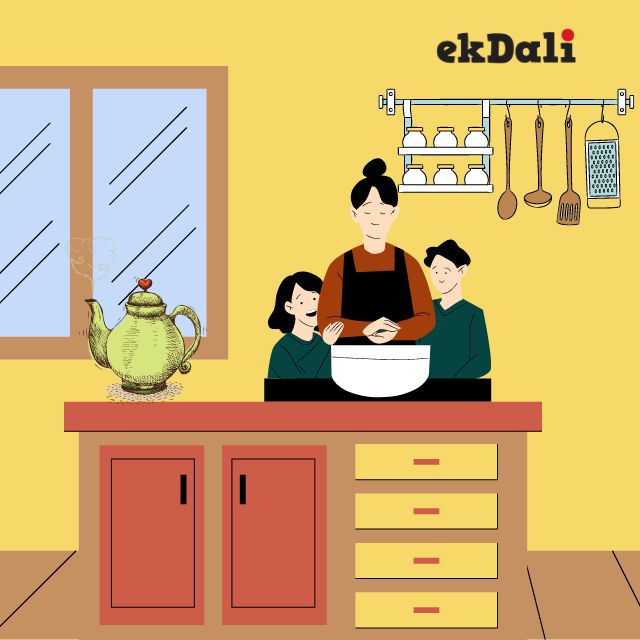To overcome their concern about tasting the unexpected, children may require repeated pleasurable meal encounters. Cooking with your children may help build confidence and give rich sensory experiences over time.
Here are five ways to have fun cooking with your kids while also fostering an adventurous eater.
Cooking can help you raise clever children.
Cooking may be used to teach a variety of topics. When exploring a recipe with children, math topics such as counting, measuring, and fractions easily emerge. Explaining how food changes with temperature or how specific meals may assist our bodies stay healthy are excellent scientific lessons. Cooking with your kid allows you to practise a new language by describing how food looks, feels, and tastes. Following a recipe from beginning to end helps you develop abilities in project planning and completion.
Make cooking a part of the family tradition. Cooking together in the kitchen might kickstart the family supper. Passing down recipes during family dinner preparation allows you to honour your cultural background. Assist your children in discovering new, seasonal dishes to add to your repertoire and family cookbook. Cooking together and prioritising health over convenience foods are excellent ways to set a good example and help your children buy into a wellness culture. Creating daily and seasonal rituals centred on cooking together strengthens your family's commitment to a healthy lifestyle.
Request feedback. When children are invited to help with food preparation, they feel more involved in mealtime. When choosing recipes for main courses or sides, consult with your children. Allow them to assist you in making a shopping list and finding groceries at the supermarket or farmers market. Allow youngsters to provide feedback on the dishes you're making when you're cooking together. You and your partner may determine which additives to use to improve the flavour. Discuss how various flavours are enjoyed by different people, and share your preferences with one another. Allowing children to be "in charge" of aspects such as table setting will help them feel involved in meals.
Use your other senses. Tasting a novel cuisine might be scary for a reluctant eater. When cooking, you may assist your toddler discover foods by utilising senses other than taste. This aids in the development of pleasant connections with eating. Kneading bread, cleaning vegetables, and breaking lettuce all need touch and familiarity with texture. The diverse flavours we perceive when eating food are the result of both tongue taste sensations and nose smells. Some youngsters may be too overwhelmed to taste new ingredients when cooking. If this occurs, advise smelling a food first; this may serve as a bridge to tasting in the future.
Keep it secure. Teach children the importance of culinary safety by demonstrating to them how to use kitchen equipment properly, how to wear oven gloves to protect their hands from heat, and how to switch appliances on and off safely. Always monitor children when they are cooking to ensure that they are performing safe and age-appropriate chores. Knowing your child's talents and stage of development is the greatest approach to keep cooking safe. A four-year-old child, for example, may not be ready to sauté vegetables in a hot skillet, but he or she may have fine motor skills sufficient to rinse fruits or shred salad leaves. With safety in mind, it is simple to get youngsters, especially toddlers, engaged in the kitchen.
Cooking as a family will help produce a happy, adventurous eater with some very valuable life skills—and plenty of joyful memories in the kitchen—over many years. With enough practise, your youngster will be able to prepare a great lunch for YOU!
-
 Posters, Flash Cards and Books are Great Conversation Starters
Posters, Flash Cards and Books are Great Conversation Starters -
 Our Posters and Flash Cards have reached over 300,000 kids
Our Posters and Flash Cards have reached over 300,000 kids -
 Same day shipping for orders before 1 PM. Next day shipping for orders post 1 PM
Same day shipping for orders before 1 PM. Next day shipping for orders post 1 PM -
 Write to us purchase@ekdali.com
Write to us purchase@ekdali.com




















